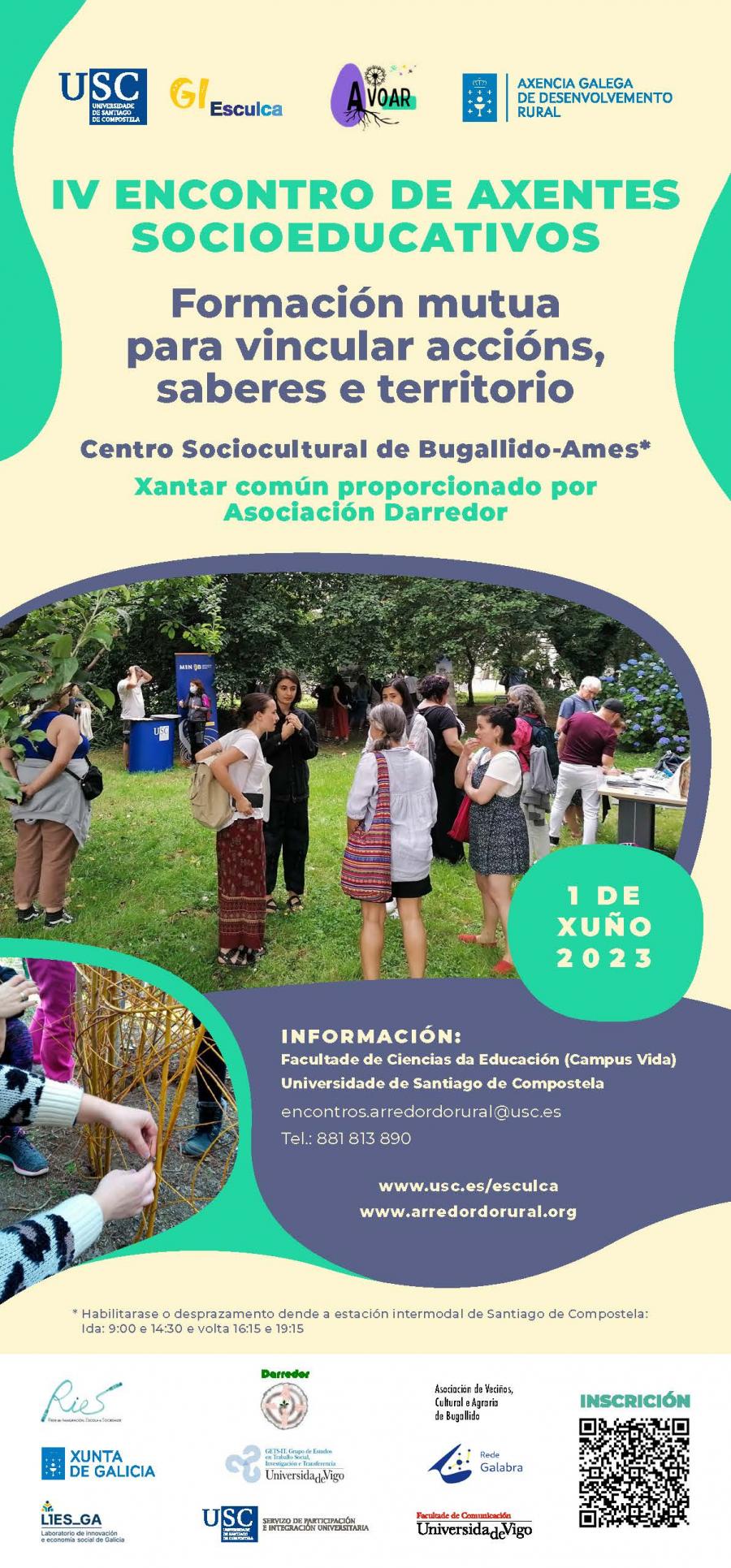
This training action, to be held on 1 June at the Bugallido Socio-Cultural Centre (Ames), aims to delve into the needs that both the University and its surrounding rural territory have in order to formulate collaborations and future projects oriented towards justice and sustainability, and is carried out with the collaboration of entities for responsible consumption, community dynamisation, social economy and ecology. For these reasons it is aligned with the Sustainable Development Goals: Citizenship education, clean and accessible energy; sustainable cities and communities; sustainable production and consumption; climate action, peace, justice and social institutions.
The aim is to make the rural environment visible to students as a place for future projects, thus promoting its activation and the decentralisation of economic systems, with the consequent reduction of the ecological footprint. This visibility is achieved through the exhibition of social innovation projects in the rural environment by the entities that carry them out, and also with the direct participation by their students in group techniques, so that they develop experiential learning and skills.
At an educational level, the focus is on the acquisition by students of knowledge relating to the challenges of the eco-social crisis we face and the contributions made by science and local-traditional knowledge of rural areas, as well as the resources available. Students will have to link this knowledge with their discipline, thus integrating their knowledge with the current problems of the rural environment and society as a whole in order to integrate resolving needs into the perspective of their future work.
At a competence level, students are expected to develop skills related to the analysis of social and economic reality, as well as establishing collaborative networks, teamwork and creativity, all of which are transversal competences in USC degrees.
- Date: Thursday, 1 June 2023.
- Place: Socio-cultural centre of Bugallido (Ames)
- Timetable: 9:30 a.m. to 2 p.m. and from 3 p.m. to 7 p.m.
- Team building: There will be a shared meal between 2.00 p.m. and 3.00 p.m.
Goals
- To find out about existing needs in the rural world.
- To understand the opportunities for building a sustainable society from an eco-social point of view.
- To get to know the possibilities that exist in the rural environment in different professions, thus being able to think about future professional and life projects in villages.
- To contribute to building the networks of contacts and alliances that allow the development of the methodologies studied in order to work towards shared goals.
Contents
Methodologies for linking territory-academia:
- Service-learning.
- Participatory Action Research.
Current rural issues:
- Territorial management to cover needs.
- Energy as a basic need.
- Diversity and representativeness.
- Other needs.
Community building as a means and an end:
- Concept of the common good and current relevance.
- Historical and current references of managing the common good.
- Emerging forms of community building.
Several activities will be methodologically carried out:
- Ways of action and solutions to suitable needs will be put together collectively through creative group techniques.
- Students will also be able to choose between two types of methodology to connect the university with the territory: Service-Learning and Participatory Action Research.
- In the afternoon there will be a round table on different ways of creating community processes that can be applied to different areas: energy communities (Amigas de la Tierra), social currency (A Sabia Moeda Galega), the participatory Art-Part festival (Autumn) and forest communities (Eco-social laboratory of O Barbanza).
As a result of this activity, students must deliver a product in one of the three modalities:
- A Participatory Action Research project idea.
- A Service-Learning proposal.
- A communicative product on one of the conclusions or issues of the conference.